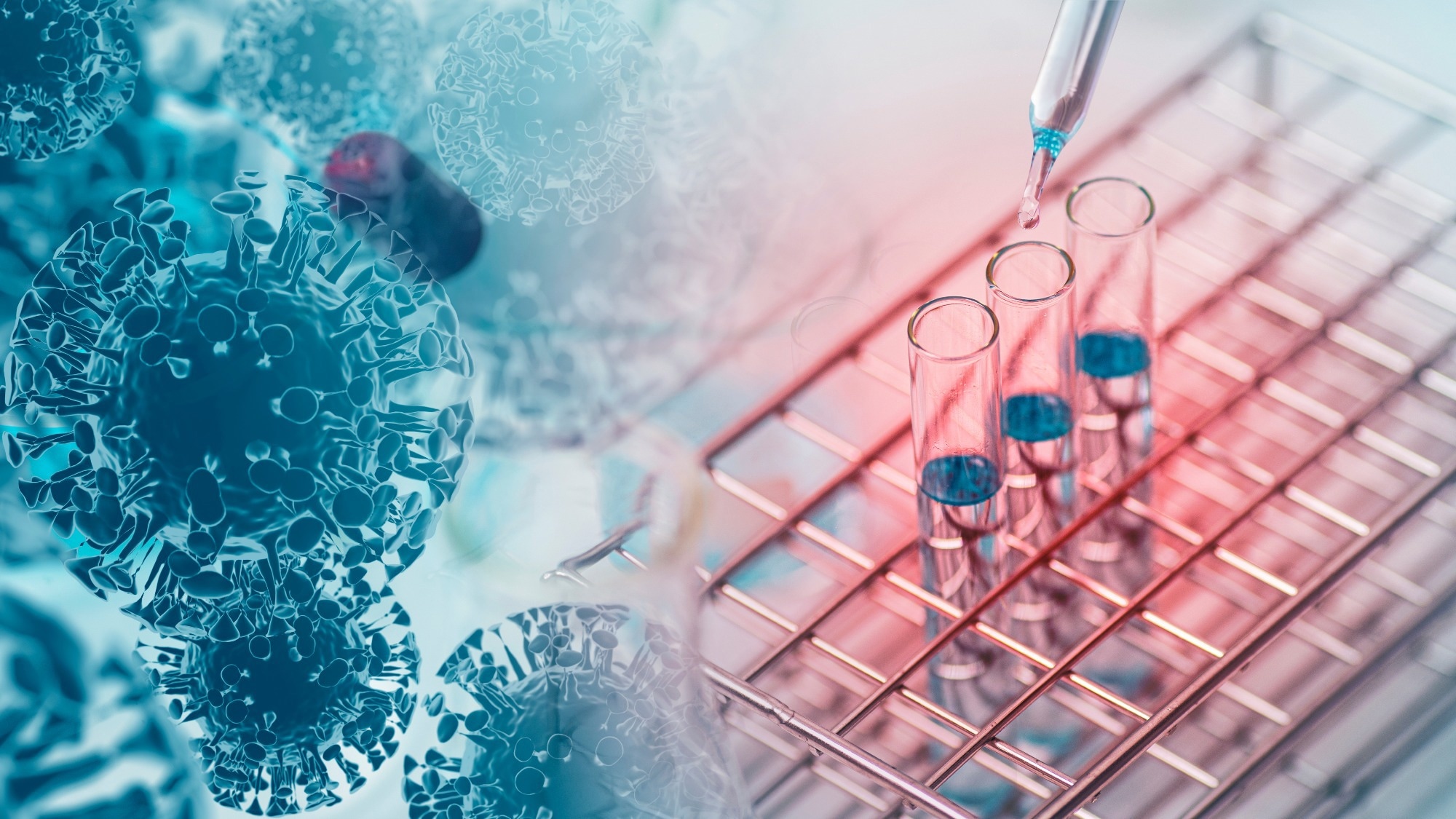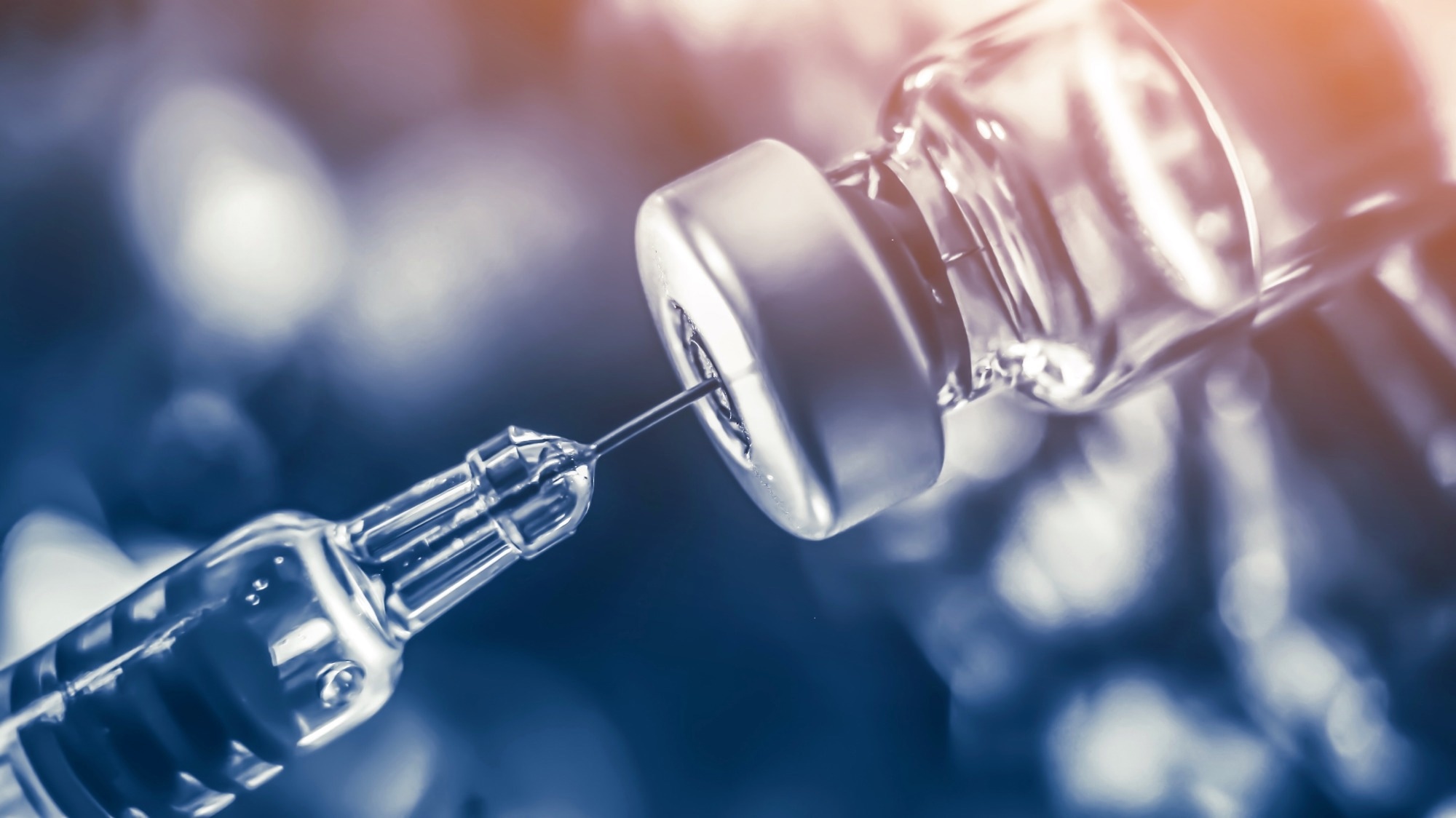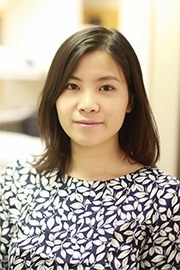In this interview, NewsMedical talks to Dr. Amy Sheng, a technical account manager at Sino Biological, and Dr. Lurong Pan, founder and CEO of next-generation biotech startup Ainnocence, about how artificial intelligence (AI) can be used in combination with high throughput production and screening to enhance the development process for potential universal vaccines.
Topics discussed include how AI can be used in combination with high throughput production and screening of proteins to expedite the development process for candidate universal vaccines – an ideal method for preventing and controlling future pandemics but also one of the major research challenges in biotechnology today.
Universal Vaccine Advancement through AI and Recombinant Technology
Video Credit: Sino Biological
Can you provide an overview of your background and your current role at Sino Biological and Ainnocence, respectively?
Dr. Amy Sheng: I am a technical account manager at Sino Biological. My background is in cell and molecular biology, antibody development, and production. Currently, I am in charge of the CRO program in Sino Biological in the United States.
Dr. Lurong Pan: I am the founder and CEO of Ainnocence, an AI drug discovery platform. I have a Ph.D. in computational biology and a background in computer science specializing in artificial intelligence. I have been in this industry doing drug design and leveraging different computational algorithms for about 14 years. I initially collaborated with Sino Biological, using them as one of the cell providers of our internal drug discovery program.

Image Credit:Shutterstock/MEimage
Can you define universal vaccines and why they are important to work on?
AS: Universal vaccines are vaccines that provide broad efficacy against various strains of a virus. From the case of SARS, we have experienced and understood how rapidly a virus can mutate and can escape immunity. Therefore, it is vital to develop the vaccine or therapeutics reagents that will continue to protect against any new versions of the virus that may emerge.
A universal vaccine has more potential compared to traditional ones in protecting vulnerable populations from various strains and even future variants. Before SARS and COVID, influenza has been a target for the development of a universal vaccine. The development of influenza vaccines with broader productions has been a goal for decades, and thanks to recent developments in vaccine targets and more efficient delivery platforms, this goal is believed to become more achievable.
What are some of the other advantages that universal vaccines have over traditional methods of vaccination with specific disease examples?
AS: With influenza, traditional vaccines do not produce durable, productive immunity and a cross-reactive immune response that can neutralize diverse influenza viral strengths. Traditional vaccine efficacy varies significantly in various age groups and against different viral strains. The strain mismatch is one of the main causes of vaccine failure. Very commonly, I hear friends say that oh vaccine does not work. Even I was knocked down for 1 week by flu even though I got the flu shot. In fact, just last year, the major strain of flu H3N2 mutated in a way that the designed vaccine could not efficiently provide immunity to the vulnerable population.
However, universal vaccines could potentially solve this issue and provide better production as quickly as possible. Besides the efficacy, universal vaccines would lower the cost of vaccine R&D, manufacturing, and stockpiling if we are faced with a rapidly mutating virus, which will greatly benefit the low-source country populations that are particularly vulnerable to pandemics.
Can you break down some of the science behind how universal vaccines work and how they are able to provide immunity against a range of diseases?
AS: Universal vaccine development mainly focuses on the unchanged part of the virus or conserved region. However, this region might be shadowed by the ever-mutating domain of the virus, which is called immunodominance. In other words, the generated universal vaccine might have lower immune responses. Now, researchers are trying to make chimeric protein vaccines to make the conservative region more immunodominant and the immune response broader and more durable.
How the vaccine is packed can also greatly affect the strain and the quality of immune responses. For example, adenoviruses can be modified and used to deliver DNA sequences encoding the viral antigens we want to present. The benefit of this is that they can keep producing the antigen for weeks, which might help extend the response.
LP: Vaccines have two types of purposes: preventive and therapeutic. Preventive means you give it ahead of time, and it is protective for a while. Those are normally the vaccines that generate B cell immunity that has a longer memory in our immune system and takes effect. From the current improvement in science, we are already observing certain antibodies or antibody cocktails that can target multiple viral infections. If we could find a universal antigen using those computational and experimental measures, the product would be a universal preventive vaccine that generates a cocktail of long-term protective B cell immunity.
Another part of our immunity is T cell immunity which normally gives a more distinct and harsh response to clear non-selective invaders of our body. We could control T cell behavior in a therapeutic way that stimulates its function when we get infected and, at the same time, customize it for different types of patients.
Some patients have compromised T cell immunity, and some have overexcited T cell immunity that causes an inflammatory effect. If we could have a modulator to stimulate our T cells to be able to protect us, clear out any invaders or pathogenic modules from outside, and at the same time not hurt us – that would also be classed as a universal vaccine used after infection to stimulate your immune system.
What are some of the challenges in finding candidates for universal vaccines, and how can AI technology help to address those challenges?
LP: Traditionally, we generate antibodies using a single antigen species. For example, with COVID, initially, we designed the vaccine using an animal model to generate antibodies to a strain that was currently happening. When the virus is mutant, we have to inject models multiple times in a timeline. We cannot chase the speed of the mutant using the conventional animal model method to develop universal vaccines.
Computational technology could be a great help in collaborative experiments where we have virtually computed all the strengths from the beginning of the pandemic to that current time point, resulting in over 1,000 different strengths. Within a few hours, you can generate antibodies that potentially target different strengths. In the opposite vein, we can also use the same algorithm to identify what is common among all those mutant strains to generate an antibody to prevent future strains. In using this model for antibody design, the antibody is also able to prevent a future strain.
There are patterns in the evolutionary trait of the viral species that we can learn from and be able to predict the future mutation trend of those species. If we can completely digitalize the virus, we could build an algorithm to find its evolutionary pattern and find a common immunogenetic sequence to contribute to the vaccine design process. Computational technology could speed up design and even help discover new phenomena in biology in the future.
How has the introduction of AI and working with companies like Ainnocence helped and changed your workflow when developing technologies like these?
AS: Ainnocence is a great platform to design proteins and antibodies and provide a guideline of what the ideal candidates look like. With Ainnocence, we can better understand and predict how the products will interact with the protein partners.
On the production side, if the vaccine is in protein form, the production of the predicted sequences can be challenging. The desired protein should have high stability, high yield, and purity for the later manufacturer and other aspects of the R&D. We have to do a lot of troubleshooting to standardize the production of that protein.

Image Credit:Shuttstock/ Numstocker
Can you talk about how you started working with Ainnocence, and how you developed the AI platform and integrated it with your development workflows to work on these new vaccine candidates?
AS: Ainnocence was one of our customers. We developed a lot of component antibody projects together. As we provide various platforms for recombinant production, especially the highest approved protein production and screening, we can produce up to 1,000 constructs in a turnaround time as short as four weeks.
Together with Ainnocence, we are able to provide quick answers to some basic information such as yield stability and purity and computational designs. We have extensive experience with viral protein production and the world’s largest viral protein bank. These antigens can be used to analyze vaccine-induced antibody responses.
Can you talk about the process of adapting your technology to what Sino needed in this project, and how does working with Sino compare to other projects that you have?
LP: We started by collaborating on the COVID project, and we found out a lot of customers not only wanted to produce a protein drug but also wanted to improve the property of those protein drugs. In the past, you had to try different mutations to find a good quality one, and this would take a lot of time and cost a lot. Suppose we could involve AI and be able to shortlist all those unnecessary experiments. In that case, we can enrich all the high-probability positive species using our AI engine and thus only need to conduct a very limited number of experiments to save time. It would expedite the R&D process and, from the customer side, mean that less money is spent on failed experiments. The technology is a good solution for the industry, and if we combine it to have a design and a production capability simultaneously, we can have a quick turnaround for more customer modules to be made. It is a good business model for both companies.
How long until universal vaccines are common in therapeutic use around the world, and how much is AI affecting that?
LP: A lot of universities, commercial entities, and nonprofit organizations are working on a universal vaccine. From a scientific and technology readiness point of view, I think we are getting close. I cannot make an accurate prediction if it will be in five years or ten years, but I think we will be able to see good animal study results in the coming three years. A large human trial is another story because that would involve a long-term series of safety studies, a larger population, and collaboration globally in different regions. In the next five to ten years, I would hope to see a vaccine validated in human trials for a candidate able to cover most of the common pathogens.
AS: What we have seen recently for SARS-COVID is a unique case of vaccine development. The normal process of universal vaccine development, or any vaccine development, would take a long time, especially in the human trial, to ensure that the vaccine has a good safety record before the government finally approves it. We hope to see that coming out faster, but the most important thing is safety and keeping that on track.
There are all different kinds of viruses like influenza, SARS, etc. During vaccine development, do you see any similar evolution patterns between different kinds of viruses?
LP: We see common patterns for viral evolution: they evolve quickly and with their hosts. It is something we can learn digitally and computationally to either analyze understanding or even predict its trend. Everything is encoded in an RNA or a DNA strain that can be shared in a digitalized way for all species. In that case, these patterns are computable.
About Dr. Amy Sheng:
Amy Sheng, Ph.D., is a technical account manager in Sino Biological. Amy joined Sino Biological in 2021 supporting CRO services and project management in Eastern US region. 
Prior to joining Sino Biological, she worked in Caprico Biotechnologies as production manager in charge of antibody development and production for flow cytometry. She has a PhD in Molecular and Cell Biology from Georgia Institute of Technology, and is ASCP-certified molecular biologist and ASQ-certified CSSGB.
About Dr. Lurong Pan
Dr. Lurong Pan is the founder and CEO of Ainnocence, an AI-powered, next-generation biotech startup. She has extensive drug design and precision medicine research experience using structural biology, computational chemistry, and artificial intelligence technologies.
She was previously a senior investigator at Global Health Drug Discovery Institute and a research scientist in structural biology and computational biology at University of Alabama at Birmingham. 
Dr. Pan received her B.S. in Applied Chemistry from Nanjing University, M.S. in Computer Science from Georgia Tech, and Ph.D. in Chemistry from University of Alabama at Birmingham. She is also an IBM-certified big data architect.
Website: www.ainnocence.com
LinkedIn: https://www.linkedin.com/company/ainnocence/
Twitter: Ainnocence (@Ainnocence_Inc) / Twitter
About Sino Biological Inc.

Sino Biological is an international reagent supplier and service provider. The company specializes in recombinant protein production and antibody development. All of Sino Biological's products are independently developed and produced, including recombinant proteins, antibodies and cDNA clones. Sino Biological is the researchers' one-stop technical services shop for the advanced technology platforms they need to make advancements. In addition, Sino Biological offers pharmaceutical companies and biotechnology firms pre-clinical production technology services for hundreds of monoclonal antibody drug candidates.
Sino Biological's core business
Sino Biological is committed to providing high-quality recombinant protein and antibody reagents and to being a one-stop technical services shop for life science researchers around the world. All of our products are independently developed and produced. In addition, we offer pharmaceutical companies and biotechnology firms pre-clinical production technology services for hundreds of monoclonal antibody drug candidates. Our product quality control indicators meet rigorous requirements for clinical use samples. It takes only a few weeks for us to produce 1 to 30 grams of purified monoclonal antibody from gene sequencing.